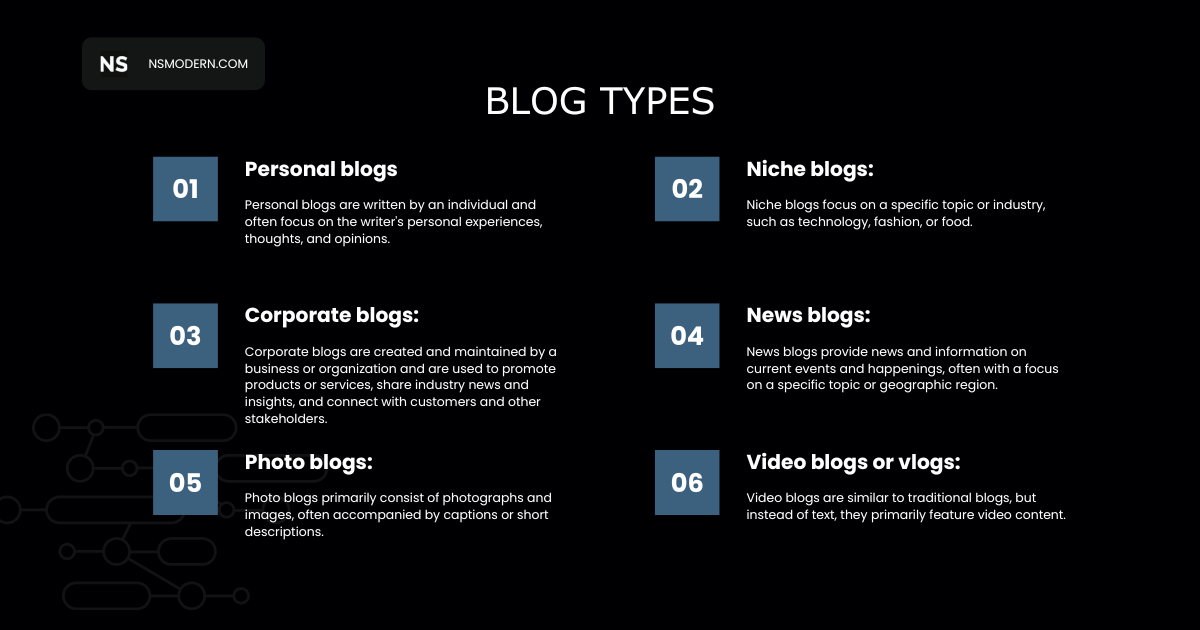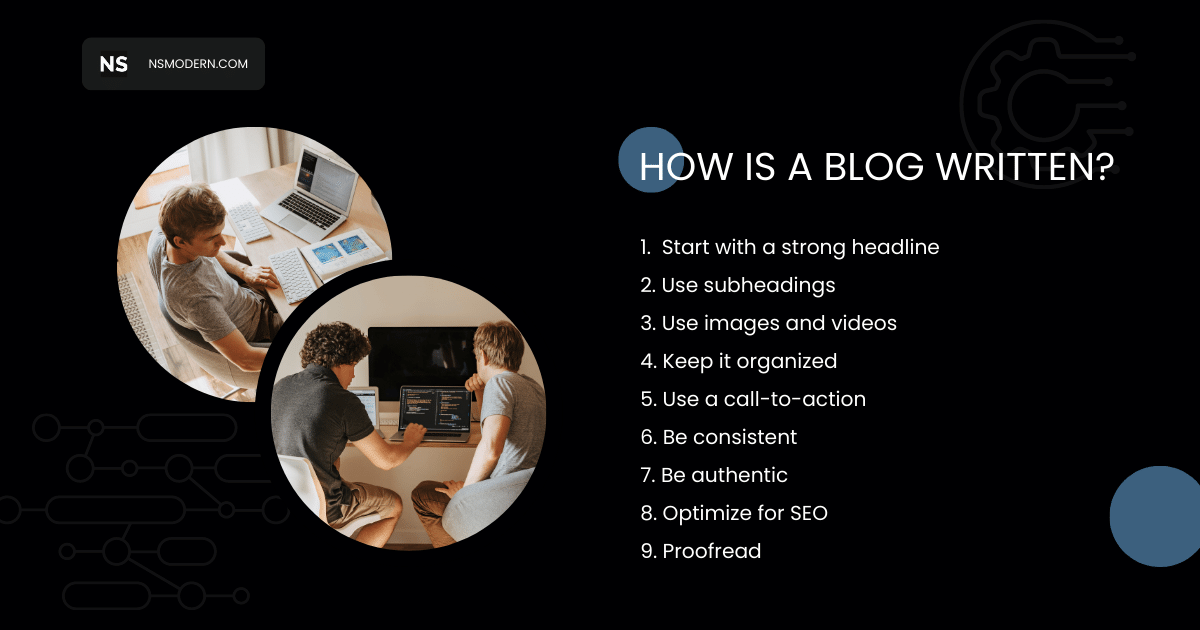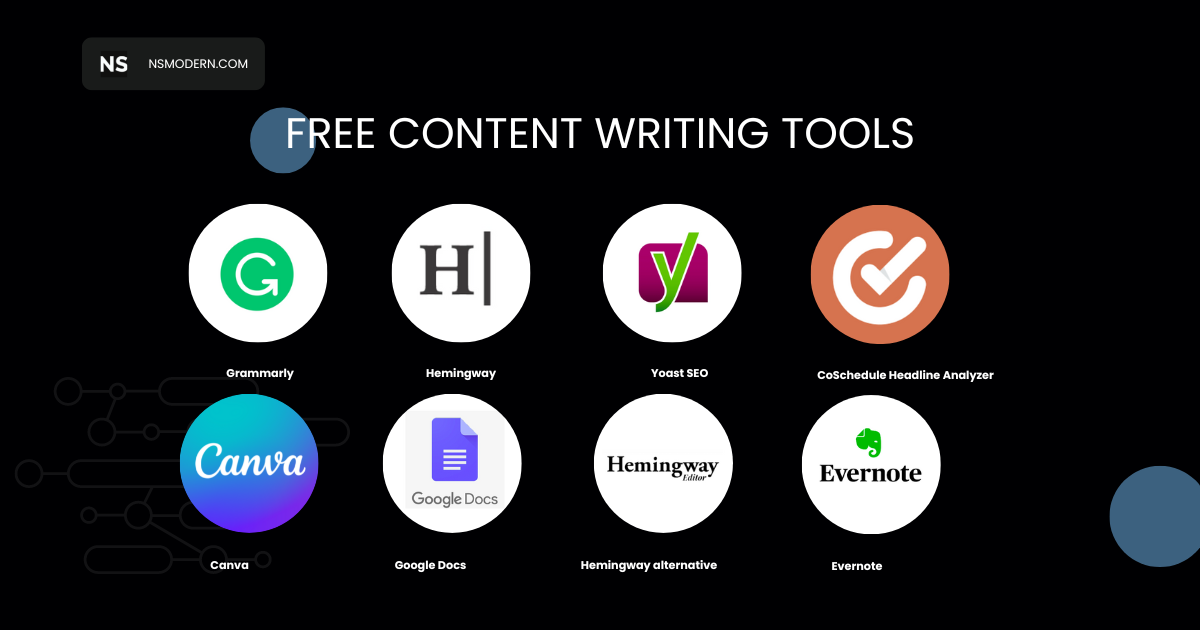updates
BLOG – An Incredibly Easy Method That Works For All: The A - Z Guide Of BLOG
February 12, 2023 ~ by Brittany T.
BLOG – An Incredibly Easy Method That Works For All: The A - Z Guide Of BLOG
There are several advantages to having a blog. Some bloggers are able to make a full-time income from their blog. However, it can take time and effort to build a following and generate income from a blog.
In this Article we will learn:
- What does blog mean?
- Why is it called a blog?
- What are the types of blogs?
- Why blog posts are important
- How do I create a blog?
- What blog niche to choose?
- How is a blog written?
- Rules for blog writing
- What is the best free blog platform?
- Can blog make money
- Free Content Writing Tools
What does blog mean?
A blog is a regularly updated website or web page, typically one run by an individual or small group, that is written in an informal or conversational style.
Blogs are usually about a particular topic or subject, such as lifestyle, travel, food, fashion, beauty, or culture. They can also be about more personal topics, such as your thoughts and feelings, your day-to-day life, or your experiences with mental health or illness.
Blogs can also be used as a platform for self-expression, as a way to share news and information, or as a means of promoting a product or service.
Why is it called a blog?
The term "blog" is a shortened version of the term "weblog," which itself was coined by Jorn Barger in 1997. Barger used the word “weblog” to describe his website, which he called Robot Wisdom. At the time, Barger was one of the first people to use the word “weblog” to describe a website, and the word caught on.
The word “blog” first appeared in 1999, when Peter Merholz used it on his website Peterme.com. Merholz is often credited with coining the term, though this is disputed.
It’s thought that the word “blog” was first used as a verb, meaning “to add content to a weblog.” The word quickly became popular, and by 2004, it was being used as a noun to describe a weblog.
What are the types of blogs?
There are many different types of blogs, and they can be a useful way to share information and connect with others. To get a clearer picture, let's look at some examples of the most common types of blogs.
- Personal blogs: Personal blogs are written by an individual and often focus on the writer's personal experiences, thoughts, and opinions.
- Niche blogs: Niche blogs focus on a specific topic or industry, such as technology, fashion, or food.
- Corporate blogs: Corporate blogs are created and maintained by a business or organization and are used to promote products or services, share industry news and insights, and connect with customers and other stakeholders.
- News blogs: News blogs provide news and information on current events and happenings, often with a focus on a specific topic or geographic region.
- Photo blogs: Photo blogs primarily consist of photographs and images, often accompanied by captions or short descriptions.
- Video blogs or vlogs: Video blogs are similar to traditional blogs, but instead of text, they primarily feature video content.
- Microblogs: Microblogs are shorter versions of blogs, usually allowing users to post short updates like twitter or tumblr.
These are just a few examples, and many blogs may fall into multiple categories or have elements of multiple types.

Why blog posts are important
Blog posts can be important for a variety of reasons, depending on the purpose and audience of the blog. Some of the benefits of blogging include:
Establishing thought leadership: Blogging can help establish an individual or organization as a leader in a particular industry or field by providing valuable insights and information on relevant topics.
Building relationships: Blogging can be used to build relationships with customers, readers, and other stakeholders by providing valuable content and fostering engagement through comments and social media.
Improving SEO: Blogging can improve search engine optimization (SEO) by providing fresh, relevant content for search engines to index, which can help increase visibility and drive traffic to a website.
Generating leads: Blogging can be used to generate leads by providing valuable content that is relevant to a particular product or service, and including calls-to-action within the blog post.
Building brand awareness: Blogging can help build brand awareness by providing a platform to share information about a company, its products and services, and its values and mission.
Boosting social media presence: Blogging can be used to boost social media presence by including share buttons on blog posts, encouraging readers to share content on social media platforms.
Creating a community: Blogging can be used to create a community around a particular topic or industry, by providing a platform for readers to share their own thoughts and opinions through comments.
How do I create a blog?
Creating a blog involves several steps, including choosing a platform, selecting a domain name and hosting, designing and customizing the blog, and creating and publishing content. Here are the general steps to create a blog:
- Choose a platform: There are several popular blogging platforms available, such as WordPress, Blogger, and Squarespace. Each platform has its own set of features and benefits, so it's important to choose the one that best meets your needs.
- Select a domain name and hosting: Your domain name is the address of your blog (e.g., www.example.com), and hosting is the service that makes your website accessible to the internet. Some platforms, like WordPress.com, provides hosting with the platform, while others you will need to purchase hosting service separately.
- Design and customize your blog: Most platforms offer a variety of templates and themes that you can use to design and customize the appearance of your blog. You can also add features like menus, widgets, and social media buttons.
- Create and publish content: Once your blog is set up, you can start creating and publishing content. This includes writing posts, adding images and videos, and formatting your content for easy readability.
- Promote your blog: Once you have some content, you can start promoting your blog on social media and other channels. This can include sharing new posts, reaching out to other bloggers, and guest posting on other blogs.
- Monetize: Once you have a steady readership, you can start monetizing your blog through various ways like sponsored posts, affiliate marketing, display ads, and more.
Keep in mind that creating a blog requires time and effort, but with patience and persistence, you can build a successful blog that reaches your target audience.

What blog niche to choose?
Choosing a niche for your blog is an important step in the process of creating a blog. A niche is a specific topic or area of interest that your blog will focus on. Here are some tips for choosing a blog niche:
Choose a topic you're passionate about: When you're passionate about a topic, it's more likely that you'll stick with it and be motivated to create quality content.
Consider your expertise: If you have knowledge or experience in a particular area, you may be well-suited to blog about it.
Look for a gap in the market: Research what other blogs are out there and see if there is a gap in the market for a blog on a specific topic or from a certain perspective.
Consider your target audience: Think about who your target audience is and what type of content they would be interested in reading.
Look for monetization opportunities: Some niches are more profitable than others, so it's worth considering if you can monetize your blog through affiliate marketing, sponsored posts, or other revenue streams.
Note:
It's worth noting that many blogs can have multiple niches and it is not uncommon for bloggers to start with one niche and evolve to another one. Some popular niches include personal development, health and wellness, travel, parenting, food, personal finance, fashion and beauty, and technology. However, ultimately, the niche you choose should be something that you are passionate about and that you can see yourself blogging about for a long time.
And finally, you’ll need to decide if there’s enough demand for the sort of content you want to write. Is there already a lot of content out there on your chosen topic? If so, can you add your own unique spin to it?
In short, choose a keyword that has High search volume, High revenue potential and Low competition.

How is a blog written?
Blogs are typically written in a conversational, informal tone and are designed to be easy to read and understand. Here are some tips for writing a blog post:
Start with a strong headline: In your introduction you need to hook people with a bold statement. Just giving them a quick overview on what you're gonna teach them is a great way to hook them in as well to get them to go more into your blog post, read more, and ideally even leave a comment.
Use subheadings: Break up your post into smaller sections using subheadings to make it easier to read and scan.
Use images and videos: Include images and videos to make your post more engaging and visually appealing.
Keep it organized: Use lists, bullet points, and other formatting tools to make your post easy to read and understand.
Use a call-to-action: Include a call-to-action, such as asking readers to leave a comment or share your post on social media, to encourage engagement.
Be consistent: Try to publish your post on a regular schedule, whether it's daily, weekly or monthly, to keep your readers engaged.
Be authentic: Be yourself and let your own voice and personality shine through in your writing.
Optimize for SEO: Use keywords and meta tags, along with other SEO techniques, to help your post rank higher in search engine results.
Proofread: Before publishing, make sure to proofread your post for grammar, punctuation, and spelling errors.
Ultimately, the most important thing is to create content that is valuable, interesting, and relevant to your readers. The more you can provide value and be helpful to them, the more likely they are to return to your blog for more.

Rules for blog writing
Write for your audience: Identify your target audience and write for them, using language and tone that is appropriate and relevant to their interests and needs.
Be authentic: Express your own voice and be authentic in your writing. Avoid using overly formal or technical language. Write in a conversational tone using words such as "you" and "I"
Be concise: Keep your posts short and to the point, avoiding unnecessary words and phrases. Your paragraphs should be 4-6 lines long. Long sentences are difficult to follow, so break them up. In the body, there should be 3-7 headings.
Use visuals: Include images, videos, and other visuals to break up text and make your posts more engaging. Include 6-7 images or multimedia in your posts.
Make sure headings and subheadings are used: Use headings and subheadings to break up your post into smaller sections and make it easier to read and scan.
Use formatting: Use formatting tools like bold, italic, and bullet points to make your post more visually appealing and easy to read.
Use links: Include links to relevant and credible sources to provide additional information and to establish your credibility as a blogger.
Proofread: Before publishing, make sure to proofread your post for grammar, punctuation, and spelling errors.
Be consistent: Try to publish your post on a regular schedule, whether it's daily, weekly or monthly, to keep your readers engaged.
Be open to feedback: Encourage readers to leave comments and be open to feedback. Respond to comments, address any concerns or questions, and use feedback to improve your blog.
By following these guidelines, you can create engaging, information and valuable content that your readers will enjoy, and that will help you to establish your blog as a valuable resource in your niche.
What is the best free blog platform?
There are several platforms that allow anyone to post content and create a blog, such as:
The best blog platform for you will depend on your specific needs and goals. Here are a few popular options and their key features:
WordPress.org: WordPress is the most popular and widely-used blogging platform. It's free to use and offers a wide range of features and customization options. It requires you to purchase hosting and a domain name separately.
WordPress.com: WordPress.com is a simplified version of WordPress.org, it's free to use and includes hosting, but with fewer customization options and with some limitations. This is a free and easy-to-use platform that allows anyone to create a blog.
Squarespace: Squarespace is a paid platform that offers a sleek and modern design, it's easy to use and offers a wide range of templates and customization options. It also includes hosting.
Wix: Wix is a website building platform that offers a wide range of templates and customization options. It's easy to use and it also includes hosting.
Blogger: Blogger is a free platform owned by Google, it allows anyone to create a blog and customize it with different templates and widgets.
Ghost: Ghost is an open-source platform for building and running a blog. It's user-friendly and offers a wide range of features and integrations.
Medium: Medium is a platform where anyone can write and share their ideas and stories. It has a large community of readers and writers, and it's also possible to monetize your content there.
Ultimately, the platform you choose should have the features and functionality that you need to achieve your goals and should be easy to use and navigate. It's also worth trying out different platforms to see which one works best for you.

Can blog make money
Yes, blogs can make money through various monetization methods. Here are a few examples of ways that blogs can generate income:
Advertising: Blogs can make money by displaying ads on their website, such as Google AdSense or other ad networks.
Affiliate marketing: Blogs can make money by promoting and recommending products and services to their readers and earning a commission for any resulting sales.
Sponsored content: Blogs can make money by creating sponsored content for brands, such as sponsored posts, reviews, or social media campaigns.
Selling products: Blogs can make money by selling products, such as e-books, courses, or merchandise.
Services: Blogs can make money by providing services such as consulting, coaching, or web design.
Membership: Blogs can make money by offering a membership program, which can include exclusive content, discounts, or other perks.
Event or courses: Blogs can make money by organizing events, webinars, or online courses.
It’s worth noting that making money from a blog takes time and effort, and it's important to have a solid plan and strategy in place before starting a blog with the purpose of making money. Also, having a large audience is not the only way to make money, a niche with a smaller but highly engaged audience can also be profitable. It's also important to comply with any legal requirements and disclose any sponsored or affiliate content as per FTC regulations.
Free Content Writing Tools for your blog
There are several free content writing tools available online that can help you improve your writing and make the process of creating content easier. Here are a few examples:
Grammarly: This tool checks your grammar, spelling, and punctuation and provides suggestions for improvement.
Hemingway: This tool analyzes your writing and highlights areas that might be difficult to read, such as long sentences or complex words.
Yoast SEO: This tool analyzes your content for SEO, providing suggestions for improving readability, adding keywords, and increasing the chances of your content being found by search engines.
CoSchedule Headline Analyzer: This tool analyzes your headlines and gives you a score based on factors such as word balance, sentiment, and readability.
Canva: This is a graphic design tool that allows you to create engaging images for your blog posts, social media and more.
Google Docs: This tool allows you to write and collaborate in real-time with multiple users, and it also has built-in spelling and grammar checkers.
Hemingway alternative: Quillbot, it helps to simplify the text and make it more readable, it also can be used to paraphrase text.
Evernote: This tool allows you to take notes, create to-do lists, and organize your ideas. You can also use it to write and save your blog posts.
These are just a few examples, there are many more available online. Keep in mind that many of these tools have a paid version which may have more features. It's also worth trying out different tools to see which one works best for you.

Bonus Tips: The 20 Best Free Content Writing Tools for Blog
- Grammarly: Grammarly is a useful tool for anyone who wants to improve their writing skills and ensure that their writing is error-free and professional. You can use Grammarly to check your writing for grammatical errors, spelling mistakes, punctuation errors, and more.
- UberSuggest: UberSuggest is a keyword research and content optimization tool designed to help individuals and businesses improve their online visibility and search engine optimization (SEO). You can use UberSuggest for Content creation, Keyword research, Competitor analysis, On-page optimization.
- Answer The Public: Answer the Public is a keyword research tool designed to help individuals and businesses understand what questions and topics are popular among their target audience. It can be a valuable tool for anyone who wants to understand what their target audience is searching for, create better content, and improve their search engine rankings. (titles)
- Hemingway: Hemingway is a writing tool designed to help people improve their writing skills. It analyzes text and provides suggestions on how to make it simpler, clearer, and more concise.
- FocusWriter: FocusWriter is a simple and free word processing software designed for writers who want to minimize distractions and improve their focus while writing.
- BuzzSumo: BuzzSumo is a content analysis and social media monitoring tool designed to help individuals and businesses understand what content is resonating with their target audience.
- Google Keyword Planner: Google Keyword Planner is a keyword research tool provided by Google AdWords. It's designed to help individuals and businesses find keywords for their website, blog, or advertising campaigns.
- Duplichecker: Duplichecker can be a valuable tool for anyone who wants to ensure that their written content is original, and avoid the consequences of plagiarism, such as reduced credibility, legal action, and reputational damage.
- Yoast SEO: Yoast SEO is a plugin for the content management system WordPress that helps individuals and businesses improve the search engine optimization (SEO) of their website or blog.
- Word Counter: A word counter is a tool that counts the number of words in a piece of text. Word counters are commonly used in a variety of applications, including writing and editing.
- Google Docs: Google Docs is a cloud-based word processing and document creation tool provided by Google. It allows individuals and teams to create, edit, and collaborate on documents in real-time.
- Canva: Canva is an online graphic design tool that makes it easy to create a variety of design materials, including presentations, posters, social media graphics, and more.
- Nimbus: Nimbus is a cloud-based project management tool that helps teams organize, prioritize, and collaborate on projects. It can be a valuable tool for teams who need to collaborate and manage projects effectively, whether they're working in an office or remotely. With its cloud-based platform and extensive project management features, Nimbus makes it easy to stay organized and on-track, no matter what your project entails.
- Headline Analyzer: Headline Analyzer is a tool that analyzes the quality of a headline and provides suggestions for improvement. The tool works by examining various factors, such as word choice, length, and structure, to determine the headline's readability and impact.
- Quetext: Quetext is a plagiarism checker tool that helps writers and students ensure that their work is original and not copied from other sources. It can be a valuable tool for anyone who needs to ensure that their work is original and free from plagiarism. Whether you're a student, writer, or website manager, Quetext provides an easy-to-use platform for checking the originality of your work.
- Rank Math: Rank Math is a WordPress plugin that provides an all-in-one SEO solution for websites. With its comprehensive set of SEO tools, Rank Math makes it easy to improve your website's performance and drive more traffic and sales.
- Simplified: Simplified blog writing tool could refer to a software or tool designed to make the process of writing blog posts easier and more efficient.
- Copy.ai: Copy.ai is a tool that provides an AI-powered writing assistant designed to help content creators generate high-quality, engaging content more quickly and efficiently.
- Anyword: Anyword’s AI writer can be a valuable tool for anyone who needs to create high-quality, engaging content quickly and efficiently. Whether you're a content creator, marketer, or blogger, Anyword’s AI writer provides an AI-powered writing assistant that can help you generate ideas and write high-quality content with ease.
- Chatjpt: Chatjpt is an AI language model developed by OpenAI, designed to answer questions and have conversations with people. Chatjpt can be a valuable tool for bloggers looking to improve their writing, gather information, and connect with their target audience. Whether you're just starting out or are an experienced blogger, Chatjpt can help you take your blog to the next level.
In Conclusion
Blogs play a crucial role in today's digital landscape. Whether it's for personal or professional use, blogging provides a platform for individuals and businesses to share their thoughts, ideas, and experiences with a global audience. Blogs help establish credibility and thought leadership, drive traffic to websites, and improve search engine optimization. Furthermore, blogs provide a space for open communication, engagement, and community building, which can lead to increased brand loyalty and customer trust. In a world where information is readily available at our fingertips, blogs serve as a valuable source of unique and valuable content. So, if you haven't already, now is the time to start a blog and see how it can benefit you or your business.
Hope you find this article helpful.
Thank you!

